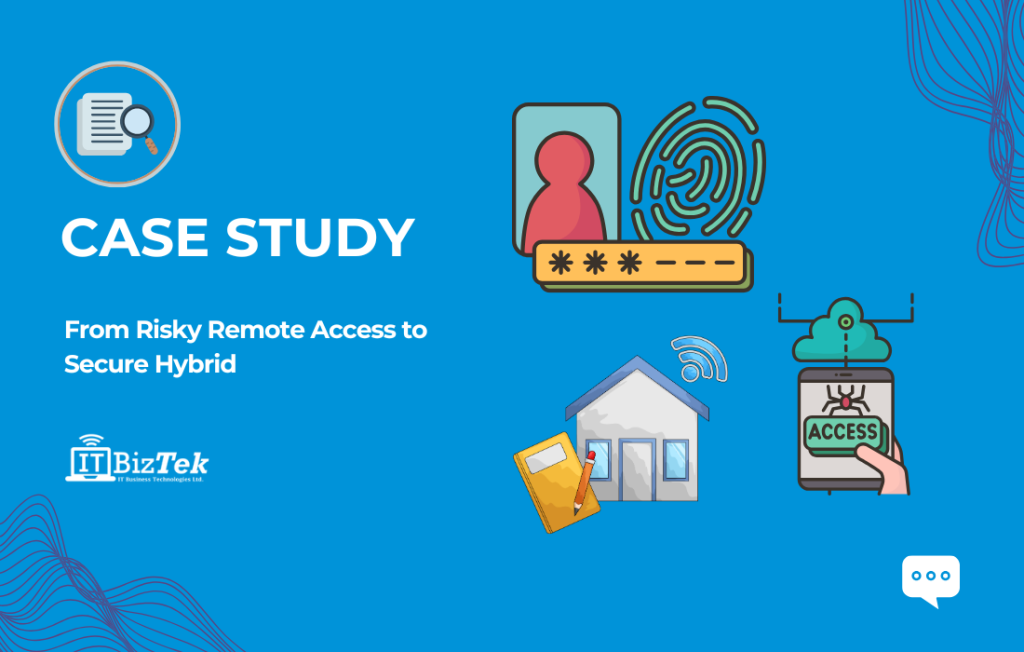In today’s fast-paced business environment, efficiency is king. The speed at which companies can adapt and respond to challenges often determines their success or failure. One of the most powerful tools in this race for efficiency is Artificial Intelligence (AI). When integrated into IT operations, AI doesn’t just streamline processes—it revolutionizes them. This blog explores how AI can be a game-changer for IT operations, focusing on how businesses can maximize efficiency by leveraging AI technologies.
The Role of AI in IT Operations
AI’s integration into IT operations—often referred to as AIOps—goes beyond basic automation. It’s about using machine learning, data analytics, and cognitive computing to predict issues before they arise, automate routine tasks, and optimize IT performance. By learning from data patterns, AI can anticipate problems, suggest solutions, and even take corrective actions without human intervention. This proactive approach not only reduces downtime but also enhances the overall efficiency of IT operations.
Automating Routine Tasks
One of the most immediate benefits of AI in IT operations is its ability to handle repetitive tasks that would otherwise consume a significant amount of time and resources. Tasks like system monitoring, data backup, and security checks can be fully automated with AI. For example, AI-driven IT systems can monitor network traffic in real time, detect anomalies, and instantly respond to potential security threats. This not only frees up IT staff to focus on more strategic tasks but also ensures a higher level of security and reliability.
Predictive Analytics for Proactive IT Management
AI’s ability to analyze vast amounts of data in real time makes it an invaluable tool for predictive analytics. In IT operations, this means that AI can predict potential system failures, performance bottlenecks, and security breaches before they happen. By analyzing historical data and identifying patterns, AI can forecast when a server is likely to fail or when network traffic might spike. This enables IT teams to take proactive measures, such as redistributing workloads or increasing server capacity, thereby preventing downtime and maintaining optimal performance.
Predictive Analytics:
- AI analyzes historical data to identify patterns.
- Predicts potential system failures and performance bottlenecks.
- Enables proactive measures to prevent downtime.
- Maintains optimal IT performance.
Enhancing IT Support with AI
AI’s impact on IT support is profound. AI-powered chatbots, for instance, can handle a wide range of customer inquiries, resolving common issues instantly and accurately. These chatbots use natural language processing (NLP) to understand and respond to user queries in a way that feels human, yet they operate 24/7 without fatigue. This ensures that IT support is always available, and the response time is significantly reduced. Furthermore, AI can triage support tickets, categorizing them based on urgency and complexity, and even suggest solutions to IT support staff, making the entire process more efficient.
AIOps: The Future of Managed IT Services
For businesses relying on Managed IT Services, AI is a critical component of future-proofing their operations. AIOps, or AI-driven IT operations, is transforming how these services are delivered. By integrating AI into managed IT services, providers can offer more proactive and efficient services. For example, AI can continuously monitor a client’s IT infrastructure, detecting issues before they affect operations, and automatically applying fixes. This reduces downtime and ensures that businesses can operate smoothly without IT interruptions.
Optimizing Resource Allocation
AI also plays a crucial role in optimizing resource allocation within IT operations. Through data analysis, AI can determine the most efficient use of resources, whether it’s server capacity, storage, or network bandwidth. By dynamically adjusting resource allocation based on current needs and predicted future demands, AI ensures that IT resources are used optimally, reducing waste and lowering costs.
Resource Allocation Optimization:**
- AI analyzes data to optimize server capacity, storage, and bandwidth.
- Dynamically adjusts resources based on current and future needs.
- Reduces waste and lowers IT operational costs.
The Benefits of AI-Driven IT Operations
The benefits of AI-driven IT operations are numerous. First and foremost, AI increases operational efficiency by automating routine tasks, predicting issues before they arise, and optimizing resource allocation. This leads to reduced downtime, lower operational costs, and improved overall performance. Additionally, AI enhances the quality of IT support by providing instant, accurate responses to customer inquiries and triaging support tickets effectively. For businesses using Managed IT Services, AI offers the peace of mind that their IT infrastructure is being monitored and maintained proactively, with issues being resolved before they can impact operations.
Embracing AI for a Competitive Edge
As businesses continue to face increasing pressures to improve efficiency and reduce costs, AI in IT operations will become not just a competitive advantage, but a necessity. Companies that embrace AI will find themselves better equipped to handle the challenges of modern IT management, from maintaining system uptime to providing top-notch IT support. By leveraging AI’s capabilities in predictive analytics, automation, and resource optimization, businesses can maximize their IT operations’ efficiency and focus on what they do best—growing their business.
In conclusion, the integration of AI into IT operations is more than just a trend—it’s a strategic imperative for businesses looking to stay ahead in today’s fast-paced environment. Whether through Managed IT Services or in-house IT departments, the future of IT operations is undeniably AI-driven. Embrace it, and you’ll find that the efficiencies gained will far outweigh the investments made.










